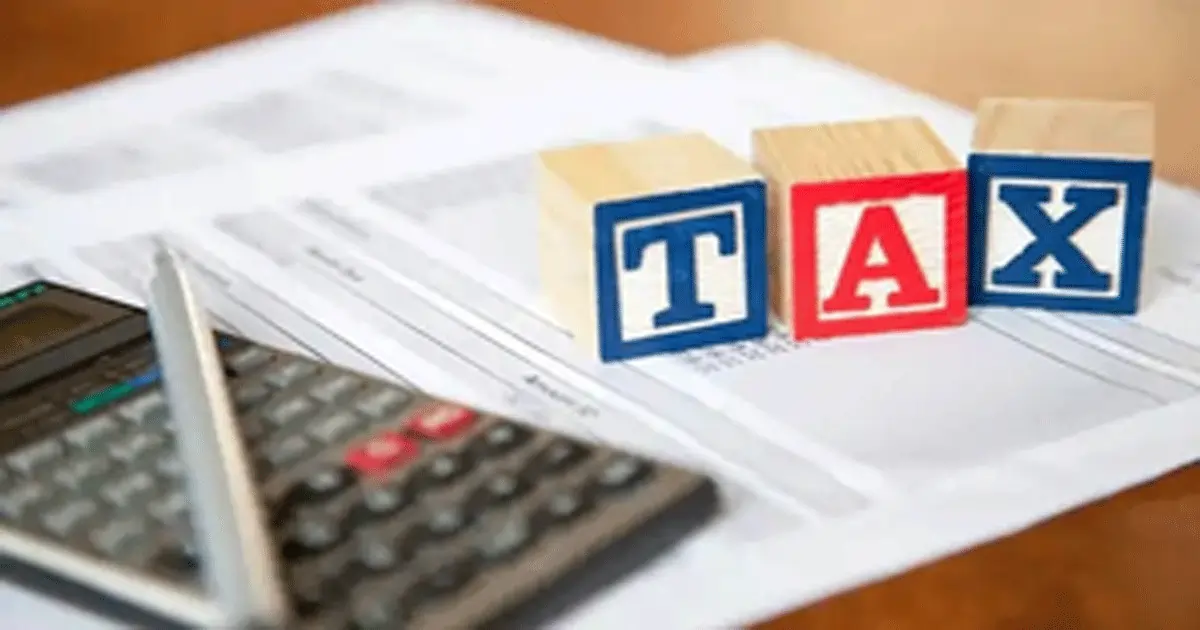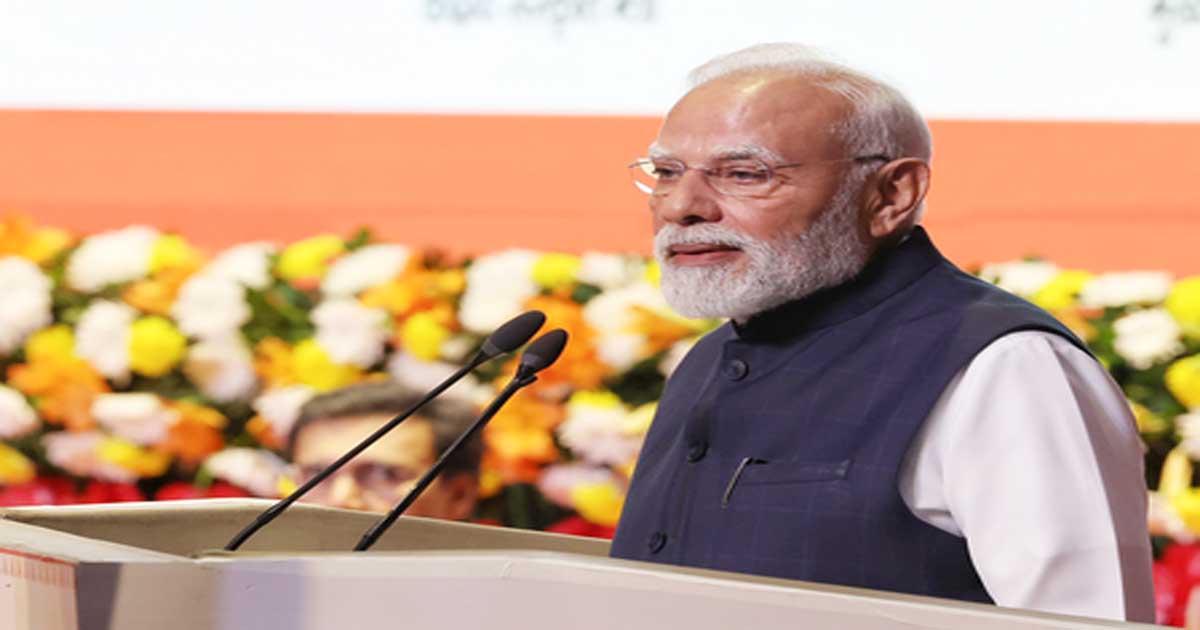Business
Govt creating new Income Tax Act for tech-driven taxpayers, scrapping convoluted older law

New Delhi, Feb 3: After providing a big relief to the Indian middle class in the Union Budget 2025-26, the government is all set to present a new Income Tax Bill this week which would further simplify the entire tax system, bringing sweeping reforms.
The current Income Tax Act was enforced in the country in 1961 and now, the new Income Tax Act is being made according to the needs of the 21st century to replace the existing law, according to sources close to the development.
While presenting the Budget in the Parliament, Finance Minister Nirmala Sitharaman said the country needs a new Income Tax regime and a bill for this would be introduced in this session — in all likelihood on February 6.
A review committee was formed for the new Income Tax law in the country to replace the earlier cumbersome law. According to sources, the new Income Tax Bill has been prepared by the government on the recommendation of the committee.
In this era of technology and massive digitalisation, taxpayers can perform several things online on his or her own. In such a scenario, there will be smooth changes in the new I-T Bill for the common man who can understand it seamlessly online. This is an attempt to make the system simple and convenient for common people,
If sources are to be believed, this bill is slated to be tabled in the Parliament on February 6. The simplification of this bill can be understood in a way that there are about 6 lakh words in the old Income Tax Act, which will be drastically reduced to about 3 lakh in the new bill, easy for taxpayers to comprehend.
The government is working on simplifying the language of the new Income Tax Bill. Actually, in the current Income Tax rules, the interpretation of one rule or the other can be different — creating confusion for taxpayers.
The earlier Income Tax law has been changed so many times and with so many additions, it became more incomprehensive for the common man.
The Parliament passed the Income Tax Act, which came into force on April 1, 1962. Since then, several amendments have been made, again and again, making it all the more complicated.
Now, as part of the process of its simplification, the government felt the need to create a new I-T Bill so that people could understand it easily.
If sources are to be believed, people are also afraid that after the implementation of the new Income Tax rules, the government will abolish the old tax regime.
But, according to sources, no such plan is there with the government yet. According to the government, about 78 per cent of taxpayers have already shifted to the new tax regime. Still, according to sources, the government is not in the mood to make any major changes to the old tax regime.
On the other hand, if sources are to be believed, the government is also trying to reduce people’s dependence on government schemes for investment so that people invest more in other assets, ranging from mutual funds and SIP to the stock market, which can be beneficial for people.
Along with this, the government’s intention behind giving such a big relief to the taxpayers is to increase private consumption which would directly benefit the health of the economy.
Business
Sensex, Nifty extend gains on buying in heavyweights

Mumbai, Oct 7: Indian stock markets continued their upward trend on Tuesday, supported by buying in major stocks such as ICICI Bank, ITC and more.
However, profit booking in select banking stocks limited the overall gains during the early trading hours.
The Sensex, which rose more than 100 points in early trade, was trading at 81,843, up 52 points or 0.06 per cent.
The Nifty also gained 34 points or 0.14 per cent to reach 25,112 after hitting an intra-day high of 25,140.
Among the top gainers on the Sensex were Power Grid, Bajaj Finance, HCL Tech, Bharti Airtel, ICICI Bank, Ultratech Cement, NTPC, Hindustan Unilever, Bajaj Finserv, and BEL, which rose between 0.3 per cent and 1.6 per cent.
On the other hand, Trent, Axis Bank, Tata Motors, TCS, SBI, Kotak Bank, Tech Mahindra, HDFC Bank, and Infosys were among the major losers, slipping up to 2.7 per cent.
In the broader market, the Nifty MidCap index gained 0.08 per cent, while the Nifty SmallCap index rose 0.41 per cent — showing continued interest from investors in smaller companies.
Among sectoral indices, Nifty Metal and Nifty IT were the top performers, each gaining 0.4 per cent.
The Nifty PSU Bank index was the worst hit, falling 0.3 per cent due to profit booking in public sector lenders.
Analysts said that overall market sentiment remains positive, though some volatility may persist due to profit-taking at higher levels.
“The ongoing mild rally in the market has the potential to gain momentum. The FII selling in India is slowly declining since the sharp appreciation in other markets has pushed up their valuations and the valuation differential between India and other markets has come down,” analysts said.
“Since there is huge short position in the market any positive news can trigger short-covering, further aiding the rally,” they added.
Business
PM Modi to inaugurate India Mobile Congress 2025 on October 8

New Delhi, Oct 6: Prime Minister Narendra Modi will inaugurate the India Mobile Congress (IMC) 2025, Asia’s premier telecom and technology event, on October 8 in the national capital, Ministry of Communications said on Monday.
The four-day mega event, themed “Innovate to Transform,” will run till October 11 and is expected to showcase India’s growing leadership in the global digital and telecom space.
Union Minister for Communications Jyotiraditya M. Scindia visited the IMC 2025 venue to review the final preparations ahead of the Prime Minister’s inauguration.
Scindia also travelled to the venue and back via the Airport Metro, symbolising India’s push for modern and sustainable urban transport.
During his visit, the minister toured the exhibition area, interacted with participating startups and exhibitors, and chaired review meetings with senior officials from the Department of Telecommunications (DoT), the Cellular Operators Association of India (COAI), and other partner agencies.
Speaking to the media, Scindia said that IMC 2025 would mark a new era in global connectivity, where technologies like 5G, 6G, artificial intelligence (AI), machine learning (ML), the Internet of Things (IoT), and satellite communications would come together to shape the future.
He emphasised that the event reflects Prime Minister Modi’s vision of a self-reliant and innovative India that connects not only within but also with the world.
IMC 2025 is expected to attract more than 1.5 lakh visitors, 7,000 delegates from over 150 countries, and 400 exhibitors spread across 4.5 lakh square feet.
The event will also feature over 1,600 technology demonstrations and 100 sessions with more than 800 speakers discussing the latest developments in telecom and digital innovation.
Highlighting the scale of the event, Scindia said that IMC has grown from being a national platform to becoming a global technology congress that represents India’s digital leadership.
He added that the 2025 edition will include six major global summits — covering 6G research, artificial intelligence, cybersecurity, satellite communications, startups, and the Global Startup World Cup — India Edition.
The minister also underlined India’s achievements in the telecom sector, noting that the country now ranks among the world’s top three digital economies with 1.2 billion mobile subscribers, 970 million internet users, and the fastest-ever 5G rollout completed in just 22 months.
Business
Sensex rises 583 points, Nifty tops 25,000 as IT and banking stocks lead rally

Mumbai, Oct 6: The Indian stock markets continued their winning streak for the third straight session on Monday, driven by strong buying in the IT and banking shares.
The benchmark Sensex jumped 582.95 points, or 0.72 per cent, to close at 81,790.12, while the Nifty rose 183.4 points, or 0.74 per cent, to end the day at 25,077.
“From a technical perspective, Nifty has successfully broken above the key psychological and technical resistance level of 25,000, turning the structure decisively positive,” analysts said.
“Any dip toward the 25,000 zone is expected to act as a strong support level, with immediate resistance seen at 25,200 and 25,500,” they added.
The Bank Nifty also delivered a stellar performance, opening with a gap-up and maintaining its upward trajectory through the session.
The index surged past 56,100, hitting an intra-day high of 56,164, with next resistance levels seen at 56,300–56,500, and support placed around 55,821–55,500, experts stated.
Broader markets also joined the rally, with the Nifty Midcap 100 gaining 0.89 per cent and the Nifty Smallcap 100 inching up 0.28 per cent.
In the Sensex pack, TCS, Tech Mahindra, Eternal, Axis Bank, and Bajaj Finance were the top performers, climbing as much as 3 per cent.
Meanwhile, Trent, Tata Steel, Power Grid, and Titan ended the session with losses. Among sectors, IT stocks led the gains as the Nifty IT index surged 2.28 per cent.
The Nifty Private Bank, Financial Services, and Healthcare indices also closed in positive territory.
On the other hand, Metal, FMCG, and Media shares came under pressure, slipping up to 1 per cent.
Market experts said the upbeat sentiment in IT stocks and strong institutional buying supported the overall market momentum.
“The domestic equity market ended the session on a positive note, led by gains in the financial services and IT sectors, ahead of the Q2 results,” they said.
“The banking index outperformed, bolstered by strong quarterly updates announced by large scheduled banks and attractive valuations, while hospital stocks surged following the revision of CGHS rates,” market experts added.
-

 Crime3 years ago
Crime3 years agoClass 10 student jumps to death in Jaipur
-

 Maharashtra1 year ago
Maharashtra1 year agoMumbai Local Train Update: Central Railway’s New Timetable Comes Into Effect; Check Full List Of Revised Timings & Stations
-

 Maharashtra12 months ago
Maharashtra12 months agoMumbai To Go Toll-Free Tonight! Maharashtra Govt Announces Complete Toll Waiver For Light Motor Vehicles At All 5 Entry Points Of City
-

 Maharashtra1 year ago
Maharashtra1 year agoFalse photo of Imtiaz Jaleel’s rally, exposing the fooling conspiracy
-

 National News12 months ago
National News12 months agoMinistry of Railways rolls out Special Drive 4.0 with focus on digitisation, cleanliness, inclusiveness and grievance redressal
-

 Maharashtra11 months ago
Maharashtra11 months agoMaharashtra Elections 2024: Mumbai Metro & BEST Services Extended Till Midnight On Voting Day
-

 National News1 year ago
National News1 year agoJ&K: 4 Jawans Killed, 28 Injured After Bus Carrying BSF Personnel For Poll Duty Falls Into Gorge In Budgam; Terrifying Visuals Surface
-

 Crime12 months ago
Crime12 months agoBaba Siddique Murder: Mumbai Police Unable To Get Lawrence Bishnoi Custody Due To Home Ministry Order, Says Report












